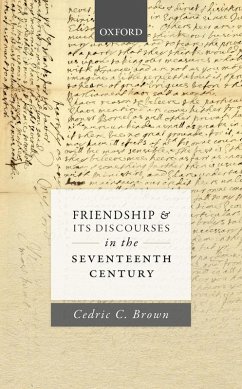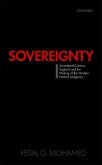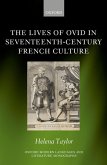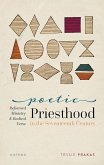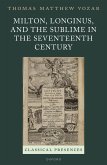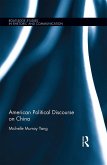Cedric C. Brown combines the study of literature and social history in order to recognize the immense importance of friendship bonds to early modern society. Drawing on new archival research, he acknowledges a wide range of types of friendship, from the intimate to the obviously instrumental, and sees these practices as often co-terminous with gift exchange. Failure to recognize the inter-connected range of a friendship spectrum has hitherto limited the adequacy of some modern studies of friendship, often weighted towards the intimate or gendered-related issues. This book focusses both on friendships represented in imaginative works and on lived friendships in many textual and material forms, in an attempt to recognize cultural environments and functions. In order to provide depth and coherence, case histories have been selected from the middle and later parts of the seventeenth century. Nevertheless many kinds of bond are recognized, as between patron and client, mentor and pupil, within the family, within marriage, in courtship, or according to fashionable refined friendship theory. Both humanist and religious values systems are registered, and friendships are configured in cross-gendered and same-sex relationships. Theories of friendship are also included. Apart from written documents, the range of 'texts' extends to keepsakes, pictures, funerary monument and memorial garden features. Figures discussed at length include Henry More and the Finch/Conway family, John Evelyn, Jeremy Taylor, Elizabeth Carey/Mordaunt, John Milton, Charles Diodati, Cyriac Skinner, Dorothy Osborne/Temple, William Temple, Lord Arlington, Sir Orlando Bridgeman, and Katherine Phillips and her circle, especially Anne Owen/Trevor and Sir Charles Cotterell.
Dieser Download kann aus rechtlichen Gründen nur mit Rechnungsadresse in A, B, BG, CY, CZ, D, DK, EW, E, FIN, F, GR, HR, H, IRL, I, LT, L, LR, M, NL, PL, P, R, S, SLO, SK ausgeliefert werden.

